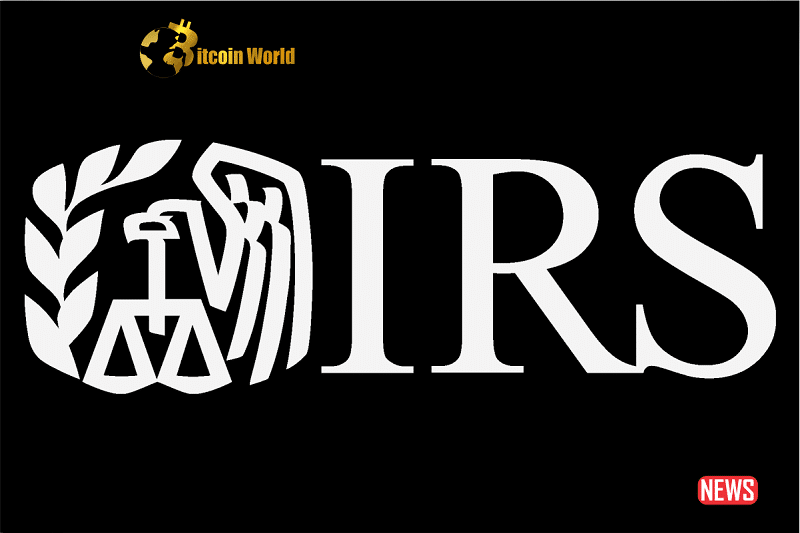Big news for crypto investors! The tax landscape just shifted. The Internal Revenue Service (IRS), the top tax authority in the United States, has dropped a significant update: if you’re earning rewards by staking your cryptocurrency, those rewards are now officially considered taxable income. Let’s break down what this means for you.
The IRS Speaks: Staking Rewards are Gross Income
The IRS has issued Revenue Ruling 2023-14, a clear statement that leaves no room for ambiguity. Think of it this way: when you stake your crypto and earn rewards for helping validate transactions on proof-of-stake blockchains, that’s income. Plain and simple. This applies to those of you using the cash method of accounting and receive your rewards in the form of cryptocurrency.
What does this actually mean? Here are the key takeaways:
- Broad Definition of Income: The IRS is taking a comprehensive view. ‘Gross income’ isn’t just about cash anymore. It includes anything of value you receive – be it money, property, services, and yes, now staking rewards.
- Direct and Indirect Staking Covered: Whether you’re staking directly or through a centralized exchange, these new rules apply to you.
- Fair Market Value is Key: You’ll need to calculate the fair market value of the crypto you receive as staking rewards. This is based on the asset’s value at the exact moment you receive it. So, keeping good records is crucial!
How Does This Compare to Other Income?
Interestingly, the IRS is drawing a parallel between crypto staking rewards and stock dividends. Ryan Selkis, the founder of Messari, pointed this out, highlighting a shift in how the IRS views crypto earnings. Previously, only crypto mining rewards were subject to income and capital gains tax, leaving staking rewards in a bit of a grey area. Not anymore!
Is Everyone Happy About This?
Not quite. Jason Schwartz, a tax partner at Fried Frank, expressed some disappointment. His point is that traditional tax law usually requires a ‘payer’ for income to be considered taxable. With staking, the mechanism is a bit different, which raises some interesting legal questions. This ruling might come as a surprise, and perhaps a setback, for investors who were hoping for a lighter tax touch on their staking rewards.
The Bigger Picture: Regulatory Scrutiny is Intensifying
This new ruling isn’t happening in isolation. We’re seeing increased regulatory attention on the cryptocurrency market in the US. Agencies like the Securities and Exchange Commission (SEC) are actively investigating crypto-staking service providers and exchanges, raising concerns about potential illegal securities offerings. This adds another layer of complexity and uncertainty for anyone involved in the crypto space.
Challenges and Opportunities in the Crypto Realm
Despite these regulatory headwinds and the new tax rules, the cryptocurrency market continues to show its resilience. We’re seeing growing integration of crypto across various industries, and the world of Decentralized Finance (DeFi) is constantly evolving and expanding.
What Should Crypto Stakers Do Now? Actionable Insights
So, what’s the practical advice for crypto investors in light of this new ruling?
- Meticulous Record-Keeping is Essential: This cannot be stressed enough. You need to accurately track the date and time you receive staking rewards and their fair market value at that moment. Spreadsheets or dedicated crypto tax software will be your best friends.
- Prepare for Tax Season: Factor these new tax obligations into your financial planning. You’ll need to report these rewards as income on your annual tax return.
- Consider Alternative Strategies: Some investors might explore crypto assets that don’t involve staking or look into other income-generating opportunities within the crypto ecosystem that might have different tax implications. Do your research and consult with a financial advisor.
Navigating the New Landscape: Benefits of Clarity?
While the news of increased taxation might be unwelcome for some, there’s a silver lining. This ruling provides much-needed clarity on the taxation of staking rewards. Previously, the lack of clear guidance created uncertainty. Now, while the tax burden exists, at least the rules of the game are more defined. This clarity can be seen as a positive step towards broader regulatory maturity in the cryptocurrency market.
Looking Ahead
The cryptocurrency market is dynamic, and regulations are constantly evolving. Both investors and industry players need to stay informed and adapt. Keep a close eye on further regulatory developments and be prepared to explore new avenues as the landscape continues to change.
In a nutshell: The IRS has officially classified crypto staking rewards as taxable income. This means you need to track your rewards, understand their fair market value when received, and report them on your taxes. While this might present new challenges, it also brings a degree of clarity to the tax treatment of these earnings. Stay informed, stay compliant, and navigate the evolving crypto world with knowledge as your guide.
Disclaimer: The information provided is not trading advice, Bitcoinworld.co.in holds no liability for any investments made based on the information provided on this page. We strongly recommend independent research and/or consultation with a qualified professional before making any investment decisions.


